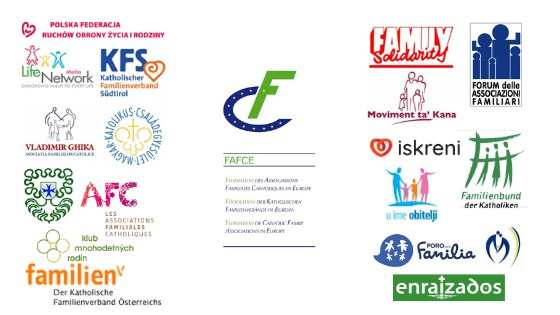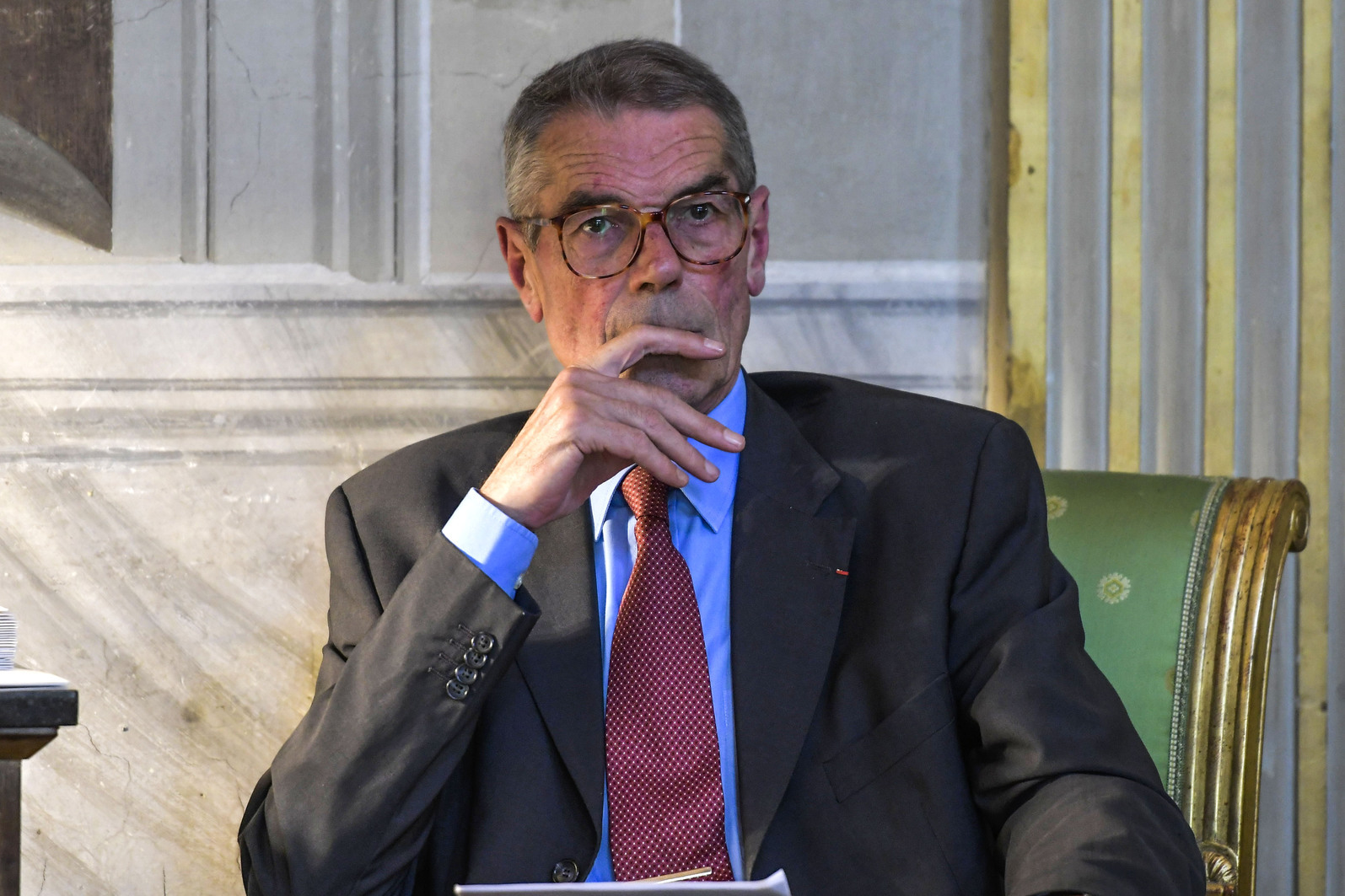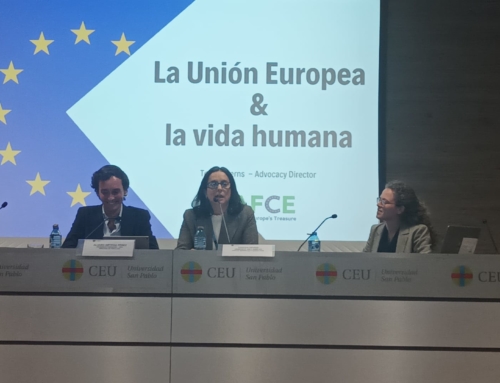FAFCE president Antoine Renard was interviewed by the Austrian Catholic Press Agency: The human rights ideal born out of the catastrophe of World War II only aimed at fostering the rights of a person, in order that the state could not deny him/her their rights. These human rights took into account social ties. Today there is a certain “tiredness” among those who rightfully believe that to act socially is better than an individualistic approach.
Vienna, 12.04.2018 (KAP) Antoine Renard, the president of the European Federation of Catholic Family Associations (FAFCE) pointed at the dangers facing the 60 year old Universal Declaration of Human Rights through individualistic and ideological re-interpretations of it in an interview Thursday in Vienna with the communication agency “Kathpress.“ “In our Christian culture we learn how to deal with strangers in the family. We learn how to treat brothers and sisters, no matter if they live in our family or outside”, said Renard. This is for him an expression of a “Christian humanism“which is a powerful component in the development of European countries.
These “Christian roots” are also included in the 1948 Declaration of Human Rights. Today, those are in danger of being undermined by an individualistic view of the world. “Individualism and indifference are the biggest dangers,” says the Frenchman: “In the meantime there is also a certain lassitude amongst those who rightfully believe that to act with social responsibility is better than individualism. They do not react anymore. The Pope is shaking them up, he says: Go on, do something, act!”
When the ideal of human rights emerged after the tragedy of the last war, the main point was to write down the rights of the person, so the state could not abrogate them. “But we see that – because of economic interests, commercialisation, etc. – individualism is influencing the understanding of human rights. There is a continuous re-writing going on: no more rights of the person, but individual rights. There are more and more demands for alleged rights for the individual, independent of personal social links”, says the FAFCE president: “This is the main problem”.
Whoever sees the person always as “all alone” cannot draw borders. “But as a Christian what makes me happy is the development of my relations with others”. Let us take the example of marriage where there were rights in order to protect the family. “The family is the place where we grow up. It is protected and marriage is protected for the sake of the children. As soon as you see marriage only as an institution for couples, there is no more reason why anybody should not marry anybody”. Marriage is transformed from an institution for the protection of the family into an institution for protection of couples.
Technical and medical progress undermine the constitution of families, says Renard; “You arrive at a completely crazy situation where a young woman in child-bearing age is urged to take the pill or to have an abortion, so she can continue working. And later on, when she is around fifty, she thinks: it would be great to have a child and she addresses herself to a technical or medical institution to help her to conceive children”.
The expectation is that people will be happy but this doesn’t work. Nevertheless this is proclaimed as a “right” – “My right is to do whatever I want”. What happens to the poor, the environment, our fellow humans, seems to be of no consequence. What seems important is “to realize myself. And I demand from society assistance to do whatever I want”.
In this way unhappiness in people appears, declared the FAFCE-President. They prefer to avoid personal contact, communicating almost exclusively with their smartphones and support populists: “Who votes for populists, cries out, he is unhappy”.
However, there is – at least in France – a new search for belief. “The Christian culture is probably diminishing, but faith is rising”, says Antoine Renard. When you have people with charisma in the sense of radiating happiness, this attracts others: “In the beginning there is no need for many, but there is need for good believers”. It is in this way that communities grow. A certain percentage of good families is enough in order to awaken others.
The new family alliance gave an impressive signal via its demonstrations called the “Manif pour tous“ in favour of the protection of life, recalls Renard. The number of participants would grow each time, until there where two million participants, among them many Muslim families. The key to success was the grass roots work.
According to Renard there are today 700,000 families organised in local Christian associations in France. Most of them participated in the “Manif pour tous” demonstrations. The motto “Act locally” would be, according to French experience, the most important lesson for work on a European level. “Enter parishes, and work within parishes, that brings success”, seems to be the right “recipe”.








